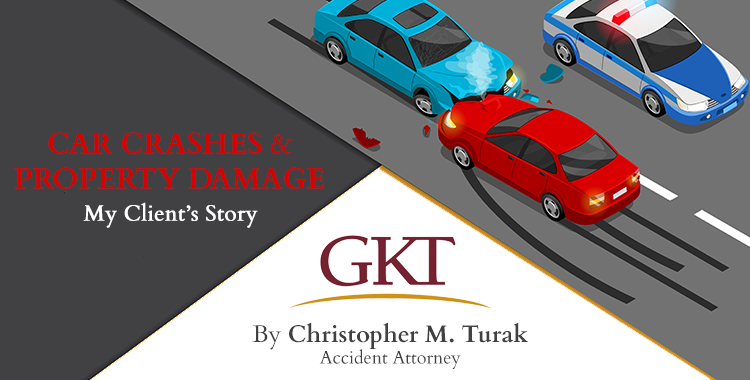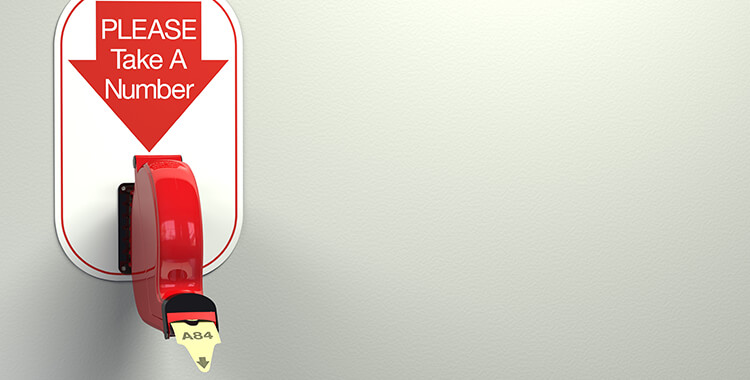
Over the last several years I’ve written a number of blogs about property damage claims and the many ways that insurance companies take advantage of inexperienced, trusting claimants. I’ve always maintained that the best settlements go to those claimants who understand the claims process, the facts of their accident and the law. Most importantly, I’ve extolled the benefit of being patient and persistent when negotiating with insurance adjusters and not letting them roll over you. A car accident property damage claim that I recently resolved illustrates all of these points.
My client is over 70 years old and was struck from behind by a drunk driver while sitting at a red light. The other driver had a BAC of .261, more than three times the legal limit. My client’s car was a total loss. She was driving a 13-year-old automobile with high mileage but the vehicle was generally in good condition. This was her only means of transportation and she lacked the resources to purchase a replacement car without the settlement funds from the insurance company.

The other driver’s insurance company realized my client’s dire situation and attempted to use that to their advantage to resolve the claim quickly and cheaply. The insurance company offered my client $1,743.70 for her car accident claim. Acceptance of this offer would have ended my client’s car accident claim. Suspecting that the insurance company was being unfair and feeling overwhelmed by the process she called me. As you will see, she made the right decision. I immediately contacted the insurance company and rejected their low ball offer. Ultimately I resolved her claim for $4,279.17.
As I stated in my past blogs, a West Virginia car accident property damage claim for a total loss includes 1) the value of the vehicle; 2) loss of use; and 3) a claim for annoyance, aggravation and inconvenience. Let’s look at each component.
Value of the Vehicle
Insurance Company’s Initial Offer: $1743.70
Offer After My Involvement: $2497.70
West Virginia Insurance regulations permit insurance companies to use several different appraisal services to value cars. While there are many approved services, I most often see CCC.1 The important thing to remember is that these valuations are only estimates and are not the only game in town. Oftentimes I will go to NADA.com or another site for competing valuations.
For a more complete discussion on how insurance companies value vehicles, see my blog “My Car is Totaled, Now What?”
In this case, the insurance company used CCC to value her 13-year-old car with 180,000 miles. I asked the insurance company to provide me with a copy of CCC’s valuation which they are required to produce. The CCC report valued my client’s car at $2497.70 but then deducted $754 in “condition adjustments.” For example, the CCC report subtracted $87 for the condition of the seats, $90 for the dashboard, $148 for the trim and $61 for the transmission. Presumably, CCC determined that my client’s car had excessive wear and tear and adjusted the price accordingly. The adjusted offer was $1743.70.

A review of the CCC report, however, showed that almost all of the condition adjustments were unsubstantiated. For example, the report listed the condition of the seats as “normal” and then inexplicably deducted $87. The report then stated that the insurance company was “unable to assess” the condition of the seats. This was the case for nearly all of the condition adjustments. How can an insurance company make condition adjustments for a “normal” condition and how does it deduct for something that it cannot assess?
West Virginia insurance regulations require any condition adjustments to be identified, measurable, discernable, itemized and specified as to dollar amount. To me it was clearly evident that the insurance company’s inability to assess the condition of the car meant that it could not comply with the regulations. Once I brought this to their attention the insurance company immediately removed the condition adjustments and paid the full appraised value of the car.
Loss of Use
Insurance Company’s Initial Offer: $0.00
Offer After My Involvement: $281.47
Under West Virginia law, you are entitled to loss of use damages for each day you are deprived of your car after an accident. Typically the insurance company provides you a rental car for this period but it may take several days for them to approve it. For each day you are without a rental car you are entitled to damages equal to the daily cost of the rental car.

In this case, the insurance company took seven days to provide my client with a rental car, therefore, I demanded $281.47 which was the daily rental rate of $40.21 times seven days. The insurance company agreed but only offered $182.70 based upon their negotiated daily rental rate of $26.10. I successfully argued that the measure of damages for loss of use is the cost of the rental car to my client not its negotiated rate.
Annoyance, Aggravation and Inconvenience
Insurance Company’s Initial Offer: $0.00
New Offer: $1,500.00
Under West Virginia law, you are entitled to recover damages for annoyance, aggravation and inconvenience if your property is injured. Anyone who has ever had their car totaled and experienced the claims process can attest to these damages. For example, you will now need to spend your time looking for a new car during the time of COVID, traveling to the DMV, removing your personal possessions from your old car and picking up and dropping off the rental. Include with this your dealings with adjusters, investigators, and tow companies and you can easily justify a claim for annoyance, aggravation and inconvenience.

In my experience an insurance company will never offer these damages unless you specifically request them. Even then the insurance company is most likely unfamiliar with these damages and will dismiss your request out of hand. In my case the insurance company never offered my client any money for annoyance, aggravation and inconvenience prior to my involvement. It even denied my request. After several letters, phone calls, cites to the applicable law and referral of the matter to the company’s legal department it begrudgingly relented. This was, however, only half the battle. As a sign of their displeasure the insurance company only offered $250. I explained that its insured was driving while intoxicated and that his reprehensible conduct had greatly aggravated and inconvenienced my client. My client had been through a lot and I thought she was justified in receiving compensation for her ordeal. Ultimately it paid $1500.
Conclusion
GKT successfully turned a $1,743.70 offer into a $4,279.17 settlement.2 While this may not seem like a lot of money it was a significant improvement over the initial offer and gave my client the needed funds towards a new car. More importantly, it was money that she was legally entitled to recover but would have lost if she had relied upon the insurance company to treat her “fairly.” Unfortunately, I see this all the time as insurance companies take advantage of unsuspecting claimants. You should expect a company to treat you fairly and consistent with the law and you should hold them accountable when they don’t.
2 Since I am representing my client in her personal injury claim I did not charge her for handling her property damage claim.
GKT Can Help You
For more than 45 years GKT has helped injured clients navigate the claims process. We understand the process and know what is necessary to make sure that every aspect of your personal injury claim is properly evaluated and considered. We know what you are going through and appreciate the stress and worries that go along with being injured through no fault of your own. We will work tirelessly to ensure that the insurance company understands and knows your claim and that you are fairly and properly compensated. We offer free consultations on all accident claims. Weekend, home, and evening appointments are available. Contact our office today at (304) 845-9750. You have questions, and we are happy to assist you.


